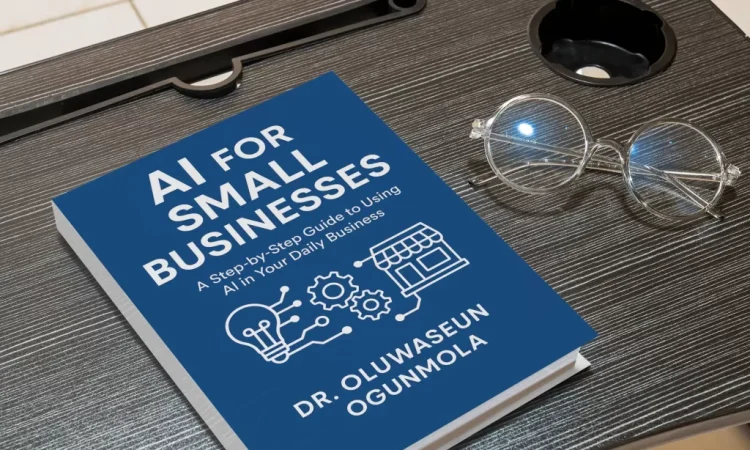
In recent years, artificial intelligence has quickly moved from being a high-tech luxury to a practical tool that small businesses can rely on every day. What was once reserved for large corporations with deep pockets is now accessible, affordable, and surprisingly simple to implement. Across industries—from retail and restaurants to consulting firms and home-based businesses—AI is helping small business owners cut costs, boost productivity, and serve customers better.
This complete guide breaks down how AI is reshaping small business operations, the tools worth considering, and the steps entrepreneurs can take to integrate AI confidently and responsibly.
Why AI Matters for Small Businesses Today
Small businesses often operate with limited staff, tight budgets, and the constant pressure to compete with larger companies. AI fills critical gaps by automating repetitive tasks, providing real-time insights, improving customer service, and helping business owners make smarter decisions.
Unlike traditional automation tools, AI systems learn from data, continuously improve, and work across multiple functions. Whether it’s analyzing sales patterns or generating marketing content, AI gives small businesses the power to do more with less.
Key Benefits of AI for Small Businesses
1. Improved Efficiency and Time Savings
One of the biggest advantages of AI is its ability to eliminate repetitive and time-consuming tasks. Activities like scheduling, answering common customer inquiries, managing inventory, or processing invoices can be automated. This frees up employees and owners to focus on higher-value work, creativity, and strategy.
2. Better Customer Experience
AI tools can help small businesses deliver fast, personalized customer service. Chatbots handle common questions around the clock, recommendation engines suggest products based on previous behavior, and AI-powered CRM systems track customer interactions to tailor follow-ups.
3. Data-Driven Decision-Making
Small businesses generate more data than they often realize—sales records, customer feedback, website activity, and more. AI tools analyze this data to identify trends, predict customer needs, and highlight new opportunities. This allows owners to make informed decisions that lead to consistent growth.
4. Cost Reduction
Automation reduces the need for extra manpower in administrative areas, while predictive analytics help business owners avoid unnecessary expenses. AI can optimize inventory levels, minimize ad spend waste, and streamline operations, ultimately increasing profit margins.
5. Competitive Advantage
Businesses that adopt AI early gain a clear edge. They operate faster, respond more accurately to customer needs, and often appear more professional and organized than competitors who still rely solely on manual processes.
Popular AI Applications for Small Businesses
1. Customer Support Automation
AI-powered chatbots and virtual assistants help answer FAQs, book appointments, track orders, and guide users. Small businesses can maintain 24/7 service without hiring additional staff.
2. Marketing and Content Creation
AI tools generate social media captions, blog posts, ad copy, and even graphic designs. They also analyze performance data to recommend the best posting times, content types, and budget allocations.
3. Sales Optimization
AI helps track leads, score prospects, and remind sales teams about follow-ups. Some tools predict which customers are most likely to purchase again, helping businesses engage at the right moment.
4. Accounting and Bookkeeping
AI-driven software automates expense tracking, invoicing, tax calculations, and financial forecasting. Errors reduce significantly and owners get instant visibility into cash flow.
5. Human Resources and Recruitment
AI filters applications, screens resumes, and identifies the best candidates based on required skills. Some tools even help map employee performance and suggest professional development plans.
6. Inventory and Supply Chain Management
For retail and product-based businesses, AI forecasts demand, predicts shortages, and automates reordering, reducing waste and improving stock accuracy.
7. Cybersecurity Protection
AI tools detect unusual activity, block threats, and help small businesses strengthen their digital security without needing a full-time IT specialist.
AI Tools Worth Considering
Small businesses can start with essential categories:
- Customer service bots
- AI content generators
- CRM platforms with AI recommendations
- Accounting software with automated insights
- Inventory and sales forecasting tools
- Email marketing automation platforms
- Project management systems with smart suggestions
Most of these applications come with low-cost or free plans, making it easy for small businesses to experiment without committing large budgets.
Steps to Successfully Implement AI in Your Small Business
1. Identify Your Pain Points
Start by listing repetitive tasks or operational challenges. Common examples include scheduling, answering customer inquiries, or tracking expenses. Understanding these pain points will help you choose the right AI tools.
2. Start Small and Expand Gradually
Implement one tool at a time. For instance, introduce a chatbot before adopting AI analytics. This minimizes overwhelm and allows your team to adjust comfortably.
3. Train Your Team
Even simple AI tools require basic understanding. Provide clear guidelines, short training sessions, or internal documents so employees know how to use the tools effectively.
4. Keep Human Oversight
AI is powerful, but it’s not perfect. Ensure a human review process for critical decisions, especially in areas like customer service, hiring, or financial analysis.
5. Monitor, Measure, and Improve
Track results after deployment. Measure time saved, cost reductions, customer feedback, and productivity boosts. Use these insights to refine your approach.
6. Prioritize Data Privacy
With AI comes the responsibility of protecting customer data. Ensure that the tools you use comply with privacy standards and security best practices.
Challenges Small Businesses May Face With AI
Learning Curve
Some tools may require basic technical understanding, but with proper training and experimentation, this becomes manageable.
Integration Issues
Older systems may not integrate smoothly with AI tools. Choosing modern, cloud-based solutions helps avoid this problem.
Cost of Advanced Tools
While many AI solutions are affordable, highly specialized tools can be expensive. Business owners should evaluate expected returns before making investments.
Fear of Technology
Employees may worry about job security or feel overwhelmed. Clear communication and reassurance can help create a positive outlook.
Future of AI for Small Businesses
AI will continue to evolve rapidly, bringing even more opportunities for small businesses. Personalized shopping experiences, fully automated customer service operations, predictive hiring, voice-activated systems, and AI-powered business planning are becoming standard. As AI becomes more intuitive, the barriers for small businesses will shrink further.
Small businesses that embrace AI today will be better positioned to thrive tomorrow. Instead of replacing human creativity, AI enhances it—allowing small teams to perform like much larger organizations.
Conclusion
Artificial intelligence is no longer a distant, complex technology reserved for big enterprises. It has become an essential tool that empowers small businesses to operate smarter, faster, and more efficiently. From automation and analytics to marketing and customer service, AI opens doors to new levels of productivity and growth.
For small business owners willing to embrace change, AI is not only a competitive advantage—it’s a transformative force shaping the future of entrepreneurship.




